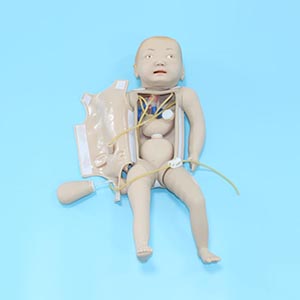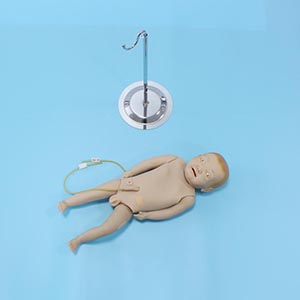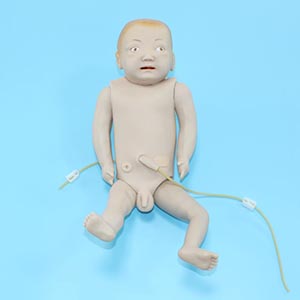Neonatal first aid skills are essential for every medical staff, especially nurses, in clinical practice. However, in the face of the vulnerabilities and special needs of newborns, theoretical knowledge is often difficult to fully respond to clinical practice. Advanced Newborn Simulator is a modern teaching tool that provides a near-realistic training platform for students to practice first aid operations in a safe, controlled environment.

1. Improve practical ability
Advanced Newborn simulators use simulation technology to perfectly reproduce the physical characteristics of newborns, including breathing, heartbeat, skin color changes and other physiological responses. Students can through practical operations, such as cardiopulmonary resuscitation (CPR) , airway infarction treatment , umbilical cord care , etc., not only can learn the operation process, but also see the operation effect in time to reduce the risk caused by improper operation to patients. This "live practice" opportunity allows students to quickly master first aid skills through repeated practice in a stress-free environment.
2. Clinical situation simulation
Compared with traditional theory learning and textbook knowledge, simulation training can effectively fill the cognitive gap of students. Advanced Newborn Simulator can not only simulate various first-aid scenarios for newborns, but also simulate emergency situations to help students make quick judgments in stressful environments. This simulation of the real situation makes the students more confident, less nervous, more detail-oriented and more accurate when facing the first aid operation.

3. Data support and effectiveness
According to some medical education studies, trainees who use advanced simulators for skill training have significantly improved success rates in actual first aid operations. For example, comparative studies of field data conducted by some hospitals and medical schools have shown that the success rate of neonatal CPR operations has increased by more than by 30% in simulators. Moreover, the error rate and improper operation rate of the trainees were significantly reduced, which means that the simulation training can effectively reduce the risk of error in clinical first aid.
4. Quick feedback and personalized improvement
The newborn Advanced simulator is able to give instant feedback based on the student's operation. For example, if the student is not pressing deep enough or at the wrong frequency during CPR, the simulator will point out the problem directly through the response of the breathing and heartbeat. Students can adjust their skills based on this immediate feedback to ensure that they can be accurate and standardized in future real operations.

Conclusion
To sum up, Advanced neonatal simulator can help students quickly master neonatal first aid operation skills in practice, especially with the assistance of repeated practice, situational simulation, instant feedback, etc., students can not only obtain technical improvement, but also psychologically prepare for the real first aid scenario. This efficient way of learning makes the training of newborn first aid skills more comprehensive and solid, and also provides a powerful tool support for future medical education.
